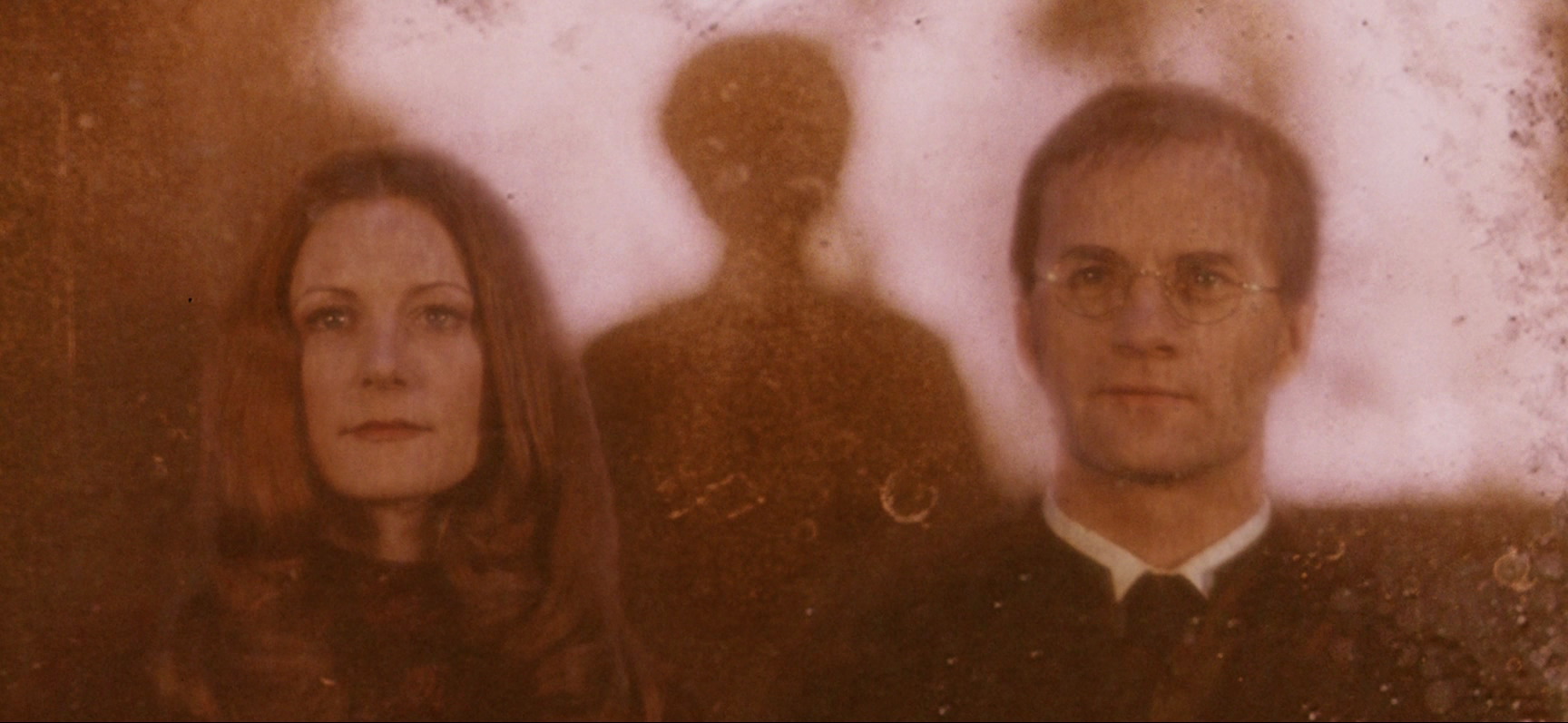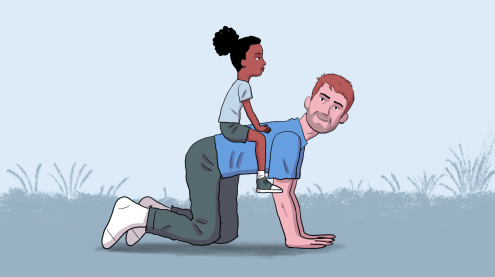The orphaned child is a familiar figure in children’s literature. Getting parents out of the way is often a necessary precursor that enables child protagonists to embark on adventures without adult interference. But in J.K.Rowling’s Harry Potter series, the young hero’s parentless state is more than a mere plot device: it’s the emotional engine that drives the stories. As former Open University lecturer Janet Seden has written: ‘The strongest messages of J.K.Rowling’s books are those about the qualities needed for parenting, as the contrast between the Dursleys and the wizarding community to which Harry really belongs is played and replayed’. (1) These messages echo the findings of parenting researchers and social care practitioners.
The Weasleys’ home at The Burrow presents us with an image of an impoverished, chaotic but loving and inclusive family, a contrast to the perfectly tidy but completely loveless world of Privet Drive, home of the Dursleys.In the opening scene of the first book we see the orphaned Harry being delivered, as a baby, to the home of his adoptive parents, the Dursleys. Vernon and Petunia Dursley will present the reader with a horrific caricature of bad parenting: they are completely lacking in love for Harry, while spoiling their biological son Dudley.
A complete contrast to the Dursleys is offered by the family of Harry’s best friend at Hogwarts School for Witchcraft and Wizardry, Ron Weasley. The Weasleys’ home at The Burrow presents us with an image of an impoverished, chaotic but loving and inclusive family, a contrast to the perfectly tidy but completely loveless world of Privet Drive, home of the Dursleys. The suggestion here is that parenting is not about perfection, but about genuine love and warmth.
Interestingly the three people who deliver Harry to his new home as a baby - Albus Dumbledore, the headmaster of Hogwarts, Professor McGonagall, and Hagrid the bumbling giant - will also act, in their different ways, as substitute parents. None of them are ‘biological’ parents, but they provide Harry with infinitely more care than his blood relatives (recent Open University research has focused on the positive role played by non-biological fathers in many children’s lives). The institution they represent – Hogwarts - will become Harry’s real second home, the place where he can become his true self. In the final scene of the first book, when Harry and his friends are about to catch the train home at the end of term, Harry says ‘I’m not going home, not really’.
If the Harry Potter series embodies its hero’s search for home and family, there is a particular focus on his quest for a father, and a number of father-figures appear in the books. Dumbledore represents the father as wise mentor, but he is also a magical figure, who can make things turn out well when they seem hopeless. Hagrid presents us with the father as playful man-child, forever taking absurd risks, but devoted to Harry. Another father figure emerges in the third book, though this is initially hidden from Harry by the dark reputation that precedes him: Sirius Black represents the father as hero.
Dumbledore tells Harry: ‘Your father is alive in you, Harry, and shows himself most plainly when you have need in him’.And Harry’s biological father, James Potter, though no longer physically alive, remains a vital presence in the stories. One of the most poignant scenes in the series occurs in the first book, when Harry discovers the magical Mirror of Erised. He thinks he can see his dead parents, waving back at him, until Dumbledore informs him that what people see in the mirror is simply their deepest desire (Erised = desire backwards). In an episode in the third book, Harry is rescued from the ghastly Dementors by his late father’s Patronus, a magical charm in the form of a silver stag. These apparitions can be seen as symbolising the way that children internalise an image of their parents. As Dumbledore tells Harry: ‘Your father is alive in you, Harry, and shows himself most plainly when you have need in him’.
Much of the public concern around parenting in recent years, has focused on absent fathers, and the apparent problems resulting from boys, in particular, growing up without a male role model. Recently The Open University partnered with Action for Children to explore this issue, interviewing boys and young men in contact with social care services. We found that the gender of the worker or carer is less important to boys than personal qualities such as warmth, genuineness and consistency. The Harry Potter stories echo these findings. The identity of the parental figure – whether they are male or female, wizard or ‘Muggle’, biological or non-biological – matters less to Harry than whether they show him genuine affection. After all, as Dumbledore explains to Harry, what saved him from Voldemort’s evil magic as a baby was his parents’ self-giving love. Perhaps the overriding message of the Harry Potter books, as far as parenting is concerned, is that, at the end of the day, love really is all you need.
Explore the role of parents further
 This article is part of our Harry Potter collection - a series of academic insights exploring some of the themes, interests and general wizardry in the novels written by J.K. Rowling.
This article is part of our Harry Potter collection - a series of academic insights exploring some of the themes, interests and general wizardry in the novels written by J.K. Rowling.
You can view our Happy Birthday Harry Potter! hub here to read all the articles. Mischief managed!




Rate and Review
Rate this video
Review this video
Log into OpenLearn to leave reviews and join in the conversation.
Video reviews